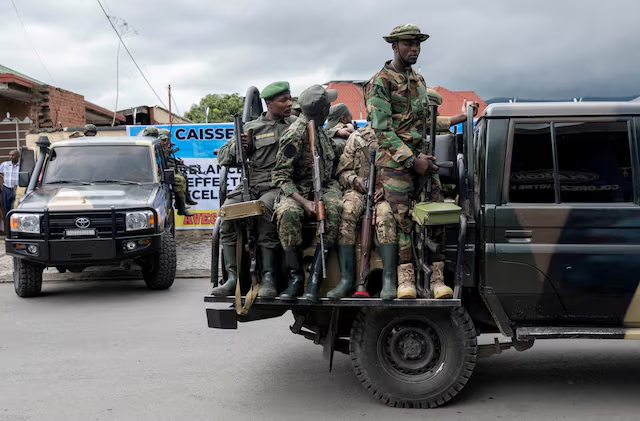Rwanda exercises command and control over M23 rebels, say UN experts

Rwanda Exercises Command and Control Over M23 Rebels, Say UN Experts
Date: July 2, 2025
Source: Reuters
Location: United Nations / Eastern Democratic Republic of Congo (DRC)
United Nations experts have reported that Rwanda maintains “command and control” over the M23 rebel group, whose violent resurgence has destabilized eastern Democratic Republic of Congo (DRC) and displaced hundreds of thousands. The revelation was detailed in a confidential report submitted to the UN Security Council, shedding new light on Rwanda’s alleged role in fueling conflict across its border.
According to the findings, the M23 group—which claims to be defending ethnic Tutsis in Congo—has received consistent support from the Rwandan military. The report outlines that Rwanda has provided weapons, uniforms, and strategic military guidance to M23 commanders, allowing the group to launch coordinated offensives against Congolese armed forces and rival militias.
The UN experts’ report cited satellite imagery, intercepted communications, and testimonies from defectors and local populations. The evidence, they assert, establishes a clear line of operational control between Rwandan forces and M23 leadership.
Humanitarian Crisis Worsens
The resurgence of M23 since late 2021 has reignited long-standing tensions in the region. In the past year alone, more than one million people have been displaced due to clashes involving the rebels. Many live in dire conditions in camps around Goma, the capital of North Kivu province.
Human rights groups have documented serious abuses by M23 fighters, including executions, sexual violence, and forced recruitment of children. The UN has warned that the worsening security situation risks triggering a full-scale regional conflict.
Rwanda Denies Allegations
The Rwandan government has repeatedly denied supporting M23. In response to the report, Rwandan officials accused the UN panel of bias and of relying on unverified sources. Kigali maintains that the conflict in eastern Congo is a result of Kinshasa’s failure to disarm Hutu rebel groups—some of whom were involved in the 1994 Rwandan genocide and continue to pose a threat to Rwanda’s security.
International Pressure Mounts
This report is expected to heighten diplomatic pressure on Rwanda. Several Western governments, including the United States and France, have previously called on Kigali to end any support for the rebels. The African Union and regional bloc East African Community have also urged for dialogue and de-escalation.
Meanwhile, DRC President Félix Tshisekedi has appealed to the international community for urgent intervention, accusing Rwanda of “aggression” and undermining Congolese sovereignty.
What’s Next?
The UN Security Council is expected to discuss the report in the coming weeks. If confirmed, the findings could prompt calls for sanctions against Rwandan officials and a reassessment of international military partnerships with Kigali.
The ongoing crisis remains a major test of regional diplomacy—and a tragic reminder of how unresolved ethnic tensions continue to fuel violence in Africa’s Great Lakes region.






